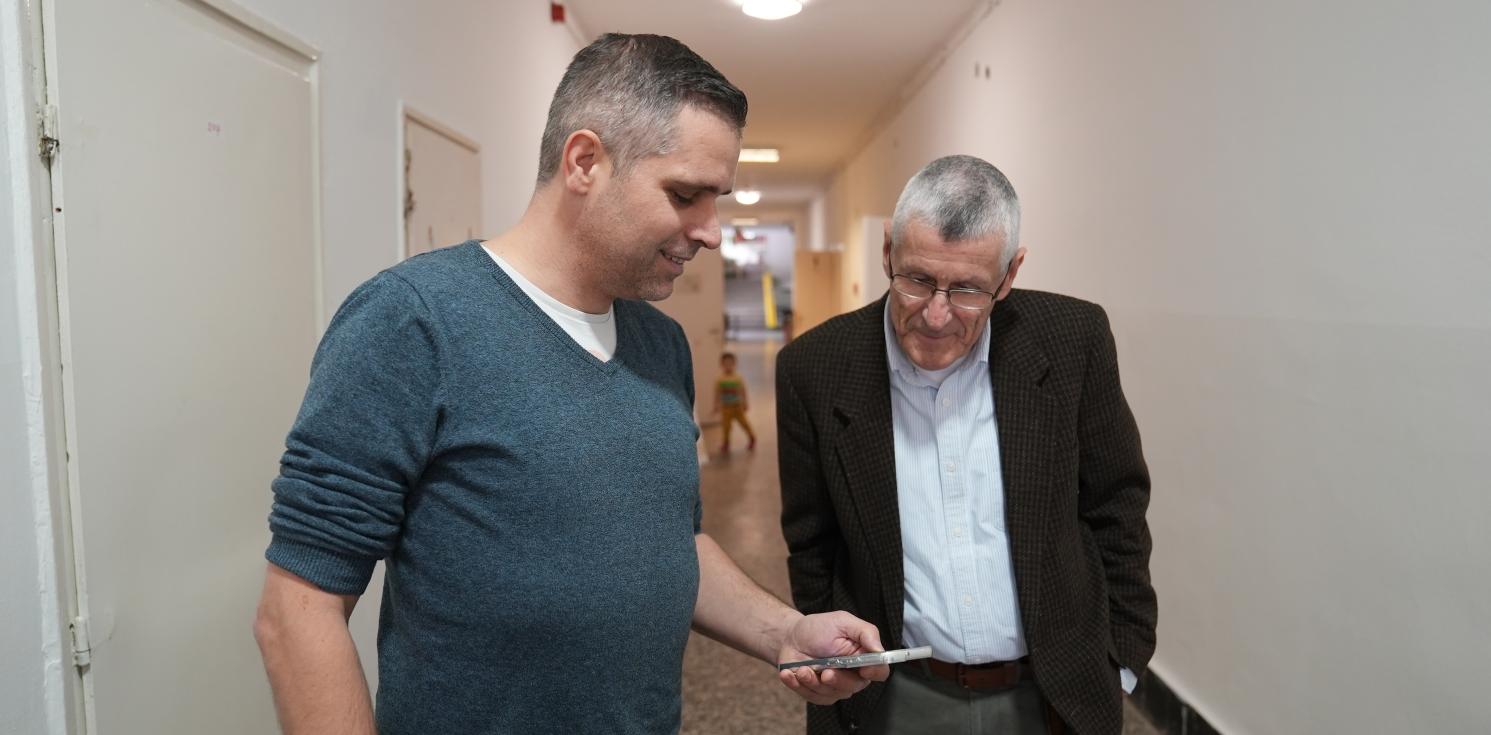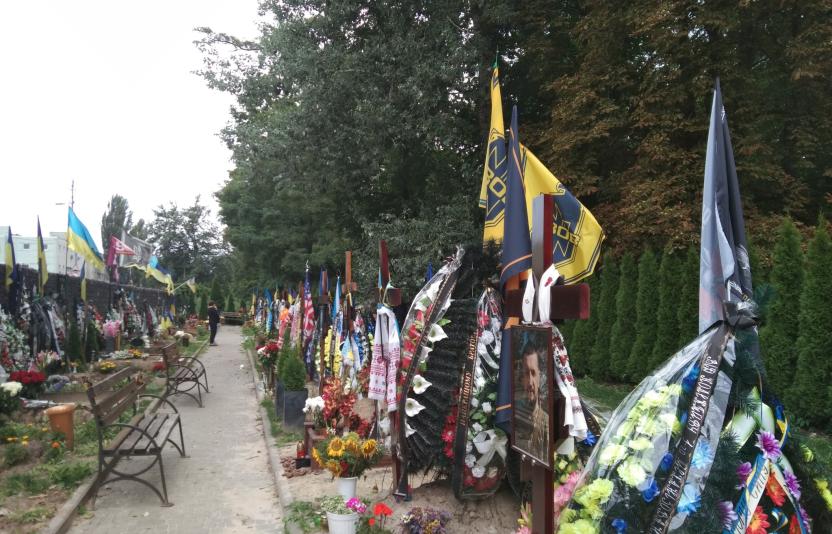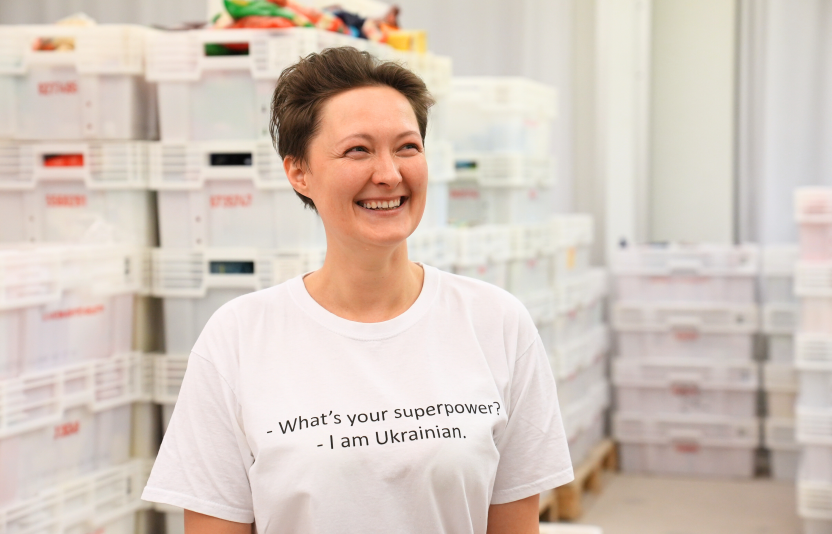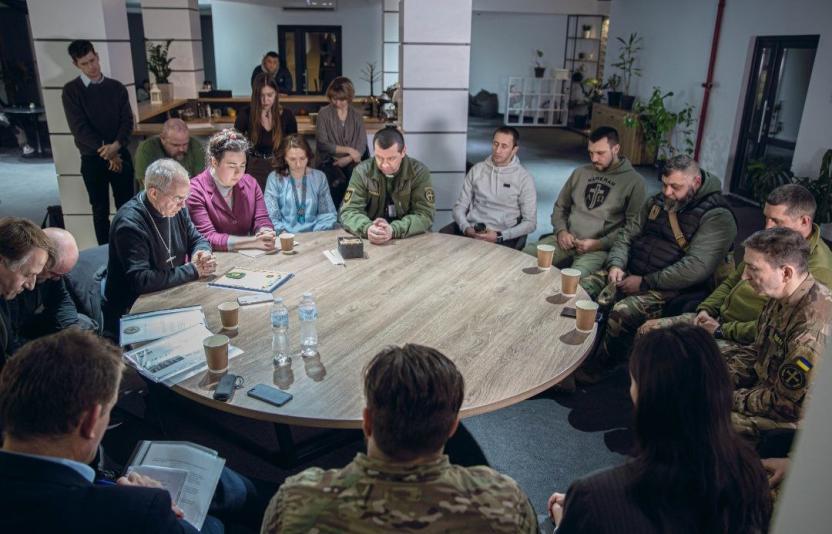‘No-one expected the war to go on for this long’: A shelter in Budapest helps Ukrainian refugees

Amber Jackson from the diocese communications team in the Diocese in Europe and Patrick Comerford from USPG are visiting Anglican chaplaincies in Hungary and Finland to see how they are supporting Ukrainian refugees with funding from the joint Ukraine appeal.
The pair visited a centre for homeless people in Budapest that has provided shelter for Ukrainian refugees.
Ever since the Russians invaded Ukraine a year ago, refugees have been pouring across the borders of Hungary and other neighbouring countries, seeking shelter and compassion.
The Menedékház Foundation, on the outskirts of Budapest, was in a strong position to deal with the crisis from the very beginning.
Menedékház is a refuge or home for homeless families with children, and for the past 12 years it has been housed in a former army barracks half an hour from the centre of the Hungarian capital.
The head of staff, Ákos Surányi, who showed us around the facilities, says Menedékház was expecting a large number of refugee families and children when the war began, and it was well-placed to deal with the crisis as it began to unfold.
Ákos explains how the foundation has been responding for years to the needs of elderly and disabled people and families who lose their family homes and of homeless people on the streets of Budapest.
Within weeks of the war breaking out last year, Menedékház was coping with the first wave of refugees from Eastern Ukraine. They included both ethnic Ukrainians and Russian-speaking refugees from places like Donbas and Donetsk.
Doctors, nurses, teachers and other professionals volunteered their expertise, and local people donated hampers and food. Grants came from the Bishop’s Refugee Appeal in the Diocese in Europe and USPG (United Society Partners in the Gospel), through the efforts of the Revd Dr Frank Hegedus, the priest and chaplain at Saint Margaret’s Anglican Church in Budapest.
Russian-speakers and Ukrainians came together in sharing their compassion for each other, understanding they were all victims of the war.
About 20 families found shelter and accommodation with Menedékház before many of the people in this first group of refugees were able to move on to other countries like Germany, Italy and the UK.
By May, a second group of up to 150 refugees from western Ukraine were being helped by the foundation.
‘No-one expected the war to go on for this long,’ Ákos says. ‘All refugees want to move on, and there are no refugees here now,’ he explains. But they are ready to take more refugee families again.
His optimism is admirable. As he explains, Menedékház is facing imminent closure. The war has also brought spiraling fuel costs and rapidly rising gas, insurance and electricity bills. The war has also played havoc with Hungary’s inflation, and the foundation is facing increasing rent demands and bills that have increased eight-fold.
Despite its success in coping with refugees from Ukraine over the past year, he predicts Menedékház is facing a major financial crisis within weeks, possibly by March. In the face of this uncertainty and possible closure, the centre continues its projects with homeless families and disabled people and with marginalised teenage boys from deprived areas in inner city Budapest.
‘As long as Menedékház continues its work, it has the support of Saint Margaret’s,’ Father Frank says with hope.


